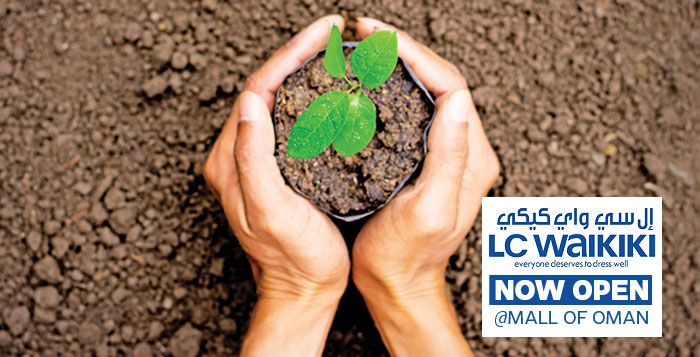
Muscat: An initiative to plant 10 million trees in Oman to reduce the country’s carbon footprint is being discussed at an event organised by the Environment Authority (EA).
The event will also look into the importance of becoming carbon negative, the added economic value of planting more native trees in Oman, and the benefits of not wasting treated effluent water by using it for agricultural purposes.
Featuring a number of key government and public sector stakeholders, the event targets the National Initiative for the Plantation of 10 Million Trees from many perspectives. Among the participants was Dr Thuraya bint Saeed Al Sariri, the assistant director general for nature conservation at the EA, and the person in-charge of the project.
“Dr. Thuraya made a visual presentation about this initiative,” said a statement from the authority, “in which she spoke of the efforts and partners required to see through the implementation, while defining the importance of initiative in terms of carbon reduction, and the added values it could achieve.”
It included the benefits of treated water for agriculture, urban tree-planting strategies in line with the project, as well as identifying species of flora which could be planted to help achieve food security. She also shed light on the economic benefits of this programme, and the importance of transitioning to renewable energy.
The Omani Sidr Association, which promotes local species of plants, conducts research, and encourages nature conservation, is expected to be a major part of this initiative. Accordingly, a presentation on the organisation’s role in the initiative was made by Dr Ahmed Al Hadary, the chairman of the association’s board of directors.
The objectives of the event also include drawing up plans to “strengthen cooperation and unify efforts by creating a national coalition of all government, private and civil society agencies to implement the initiative and achieve its desired goals, and to overcome challenges in implementing the initiative and finding quick solutions to implement and achieve the desired objectives,” added the Environment Authority.
Other aims are to “identify quick investment opportunities and knowledge transfer related to the initiative, define and envision short-term and long-term initiatives, projects and investment opportunities, and to hold a special discussion lab in this context.”
Officials from several government bodies involved in the project gave presentations on their roles, including Dr Khair Al Busaidi from the Department of Palm and Plant Production at the Ministry of Agriculture, Fisheries, and Water Resources, Noor Al Raisi and Asila Al Busaidi, regional and urban planners from the Ministry of Housing and Urban Planning, and Dr Ali Al Subhi, plant genetic resource consultant, Ministry of Higher Education, Research and Innovation.
Individuals from other companies involved in the initiative also spoke at length about their role. Among them were Hilal Al Dhakri, business development manager at Oman Water and Wastewater Services Company; Nabil Al Lawati, director of environmental affairs, Petroleum Development Oman; and Al Mutasem Al Sariri, head of the Department of Foreign Relations and Social Investment at OQ.